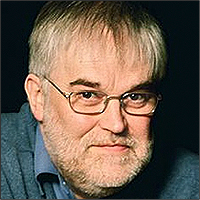Prof. Adam Ockelford
// Author & ProfessorPROF. ADAM OCKELFORD is an author and Professor of Music at Roehampton University in London, England. “All Join In” (1996) was available from AFB Press, “The Cognition Of Order In Music: A Metacognitive Study” (1999) was available from ASME, Olga Miller and Adam Ockelford’s “Visual Needs” (2005) is available from Continuum, “Focus On Music: Exploring The Musical Interests And Abilities Of Blind And Partially-Sighted Children And Young People With Septo-optic Dysplasia” (2006) is available from the Institute of Education, “In The Key Of Genius: The Extraordinary Life Of Derek Paravicini” (2007) is available from Arrow Books and Hutchinson Books, “Music For Children And Young People With Complex Needs” (2008) is available from Oxford University Press, “Repetition In Music: Theoretical And Metatheoretical Perspectives” (2005) is available from Ashgate Publishing, “Focus On Music 2: Exploring The Musicality Of Children And Young People With Retinopathy Of Prematurity” (2009) is available from the Institute of Education, and “Music: Cracking The Code” (2009) is currently on submission with the Andrew Lownie Literary Agency. Prof. Adam Ockelford has also provided the forward to Pat Lloyd’s “Let’s All Listen: Songs for Group Work in Settings That Include Students With Learning Difficulties and Autism” (2008) available from Jessica Kingsley Publishers. Adam Ockelford has devoted his life to researching, studying, and teaching “musical savants”: people with exceptional abilities in their musical talents.
Website: www.roehampton.ac.uk
Photo: Prof. Adam Ockelford / Roehampton University
Interview:
As an atheist, I don’t believe that music has any spiritual significance. In my opinion, what people take to be the spiritual element of music results from an emotional reaction that they take to be spiritual. However, I passionately believe in respecting the religious views of those who hold them, where these do not have a deleterious effect on others and if, in their view, music has a spirituality that supports worship and connectedness with their God or Gods, so be it. By the way, I see no inconsistency in the deep pleasure that I gain from listening to the music of J. S. Bach, for example, who would sign off pieces “Soli Deo Gloria”, since the meaning of the music, like all music, can be appreciated in different ways, and is ultimately a personal thing. And to those who believe that music can be spiritual, I say “good for you”.
“What people take to be the spiritual element of music results from an emotional reaction that they take to be spiritual.”
– Prof. Adam Ockelford, author of “In The Key Of Genius: The Extraordinary Life Of Derek Paravicini”


